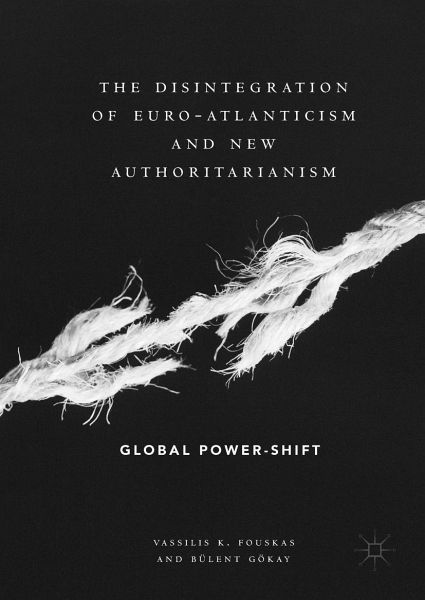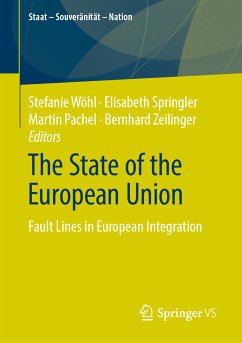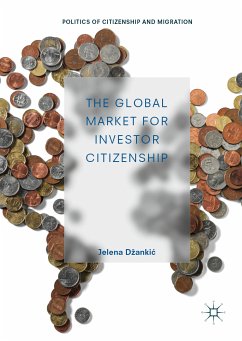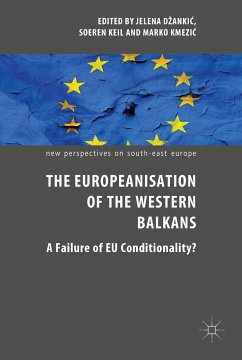
The Disintegration of Euro-Atlanticism and New Authoritarianism (eBook, PDF)
Global Power-Shift
Versandkostenfrei!
Sofort per Download lieferbar
40,95 €
inkl. MwSt.
Weitere Ausgaben:

PAYBACK Punkte
20 °P sammeln!
This book sets out a concrete analytical and empirical framework to understand the Euro-zone crisis and the deep disintegrative tendencies of Euro-Atlantic neo-imperialism. It explores how the authoritarianism and austerity led from above in the transatlantic world cultivate right-wing populism and racist hysteria from below, especially in relation to the global power-shift to China and other emerging economies. The authors argue that ordoliberal/neo-liberal austerity cannot reverse the decline of western economies; if anything, it precipitates their downfall and the re-launching of globalizat...
This book sets out a concrete analytical and empirical framework to understand the Euro-zone crisis and the deep disintegrative tendencies of Euro-Atlantic neo-imperialism. It explores how the authoritarianism and austerity led from above in the transatlantic world cultivate right-wing populism and racist hysteria from below, especially in relation to the global power-shift to China and other emerging economies. The authors argue that ordoliberal/neo-liberal austerity cannot reverse the decline of western economies; if anything, it precipitates their downfall and the re-launching of globalization under Asian primacy. The book will appeal to students, scholars and policymakers across the fields of International Political Economy, European Politics and Critical Social and Political Theory.
Dieser Download kann aus rechtlichen Gründen nur mit Rechnungsadresse in A, B, BG, CY, CZ, D, DK, EW, E, FIN, F, GR, HR, H, IRL, I, LT, L, LR, M, NL, PL, P, R, S, SLO, SK ausgeliefert werden.












